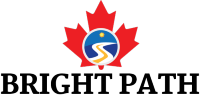
The TR to PR immigration pathways were introduced via special public policies and aim to grant permanent status to temporary workers and international graduates who are in Canada and who possess the sought-after skills and experience needed to accelerate Canada’s economic recovery following the COVID 19 pandemic.
Within these announcements, Immigration, Refugees, and Citizenship Canada published 4 special public policies, introducing these new pathways to Canadian permanent residence. These are:
International Graduates in Canada.
French-speaking International Graduates in Canada.
Foreign nationals in Canada with recent Canadian work experience in essential occupations.
French-speaking foreign nationals in Canada with Canadian work experience in essential occupations.
Who Qualifies Under the TR to PR Iimmigration Program Targeting International Students?
To qualify under the new immigration programs targeting international students, applicants must demonstrate that they have the following:
Graduated from a program of study from a Designated Learning Institution in Canada after January 2017 that was at least 8 months in duration,
Obtained one of the following credentials from the Designated Learning Institution:
a degree (Associate, Bachelor’s, Master’s, or Doctorate);
a degree, diploma, certificate, or attestation issued on completion of a program of any duration leading to upation in a skilled trade; or
one or more diploma/certificate/attestation where the following conditions are met:
For diplomas/certificates/attestations, each program of study must be at least 8 months in duration and the combined length of the credential(s) must be equivalent to a two-year credential (at least 16 months in duration).
For the DVS and AVS, each program of study must be at least 900 hours in duration and the combined program of study must be at least 1,800 hours in duration.
When combining one AVS with one DVS, the length of the AVS may be less than 900 hours if the combined length is at least 1,800 hours.
Held a valid study permit throughout their education in Canada;
Be currently employed in Canada with valid work authorization to work
Have attained a level of proficiency of at least CLB level 5 in English or French in the last 2 years if applying under the foreign national’s program and at least CLB level 5 in French if applying under the French-speaking program;
Reside in Canada with valid temporary resident status (or be eligible to restore their status) and be physically present in Canada at the time the application for permanent residence is received and when the application is approved;
Intend to reside in a province or territory other than Quebec. In addition to the above criteria, all applicants (and dependent family members) must pass medical and criminal background checks and must not be inadmissible to Canada.
Who Qualifies Under the TR to PR Immigration Program Targeting Essential Occupations?
To qualify under the new immigration programs targeting essential occupations, applicants must demonstrate that they have the following:
At least one year of full-time or full-time equivalent work experience in an eligible essential worker or health- care worker within the last 3 years immediately before the submission of the application. The one year of work experience must be obtained in one or more of the eligible occupations as follows:
Health-Care Workers: the one year of work experience must have been acquired in one or more occupations listed below.
Essential Worker: the one year of work experience must have been acquired in one or more occupations listed below, or in a combination of occupations classified as Health-Care Workers or Essential Worker.
Are currently employed in Canada in any occupation at the time that the application for permanent residence is received;
Meet the definition of a worker and held valid work authorization for the period of qualifying Canadian work experience;
Have attained a level of proficiency of at least CLB level 4 in English or French in the last 2 years if applying under the foreign national’s program and at least CLB level 4 in French if applying under the French-speaking program;
Reside in Canada with valid temporary resident status (or be eligible to restore their status) and be physically present in Canada at the time the application for permanent residence is received and when the application is approved;
Intend to reside in a province or territory other than Quebec. In addition to the above criteria, all applicants (and dependent family members) must pass medical and criminal background checks and must not be inadmissible to Canada.
What Occupations in the TR to PR Immigration Program Qualify as Essential Worker?
To qualify under one of the public policies targeting Essential Workers, applicants must have at least 1 year of Canadian work experience in the last 3 years in one of the targeted occupations. Immigration, Refugees and Citizenship Canada have identified around 100 occupations that are considered essential. A full list of these occupations can be found here.
What Occupations in the TR to PR Immigration Program Qualify as a Health-Care Worker?
To qualify under one of the public policies targeting Health-Care Workers, applicants must have at least 1 year of Canadian work experience in the last 3 years in one of the following occupations:
- Nursing co-ordinators and supervisors
- Registered nurses and registered psychiatric nurses
- Specialist physicians
- General practitioners and family physicians
- Dentists
- Optometrists
- Chiropractors
- Allied primary health practitioners
- Other professional occupations in health diagnosing and treating
- Pharmacists
- Dietitians and nutritionists
- Audiologists and speech-language pathologists
- Physiotherapists
- Occupational therapists
- Other professional occupations in therapy and assessment
- Medical laboratory technologists
- Medical laboratory technicians and pathologists’ assistants
- Respiratory therapists, clinical perfusionists, and cardiopulmonary technologists
- Medical radiation technologists
- Medical sonographers
- Cardiology technologists and electrophysiological diagnostic technologists, n.e.c.
- Other medical technologists and technicians (except dental health)
- Denturists
- Dental hygienists and dental therapists
- Dental technologists, technicians, and laboratory assistants
- Opticians
- Practitioners of natural healing
- Licensed practical nurses
- Paramedical occupations
- Massage therapists
- Other technical occupations in therapy and assessment
- Dental assistants
- Nurse aides, orderlies, and patient service associates
- Other assisting occupations in support of health services
- Psychologists
- Social workers
- Family, marriage, and other related counselors
- Health policy researchers, consultants, and program officers
- Social and community service workers
- Home support workers, housekeepers, and related occupations



